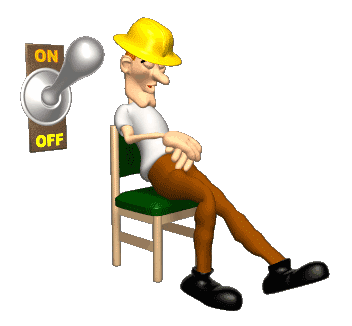Sleep Switch.
There is no doubt in my mind the importance of good sleeps. I can feel devastating results immediately following a night of poor sleep. A few poor sleeps in a row cause physical mayhem. Lots of poor sleeps feels like it is bringing on early death. I think it might be true.
I discussed my difficulties with delayed sleep syndrome with my family doctor and he said, “falling asleep should be the most natural thing in the world”. Perhaps for him it is, but for me it is a struggle crossing decades.
Switches are everywhere. Computers and computer networks are a series of billions or trillions of switches. We enter a room and switch on a light. We switch the TV. We switch on our car. Switches are everywhere and work pretty much without problems. So why is switching our brain from conscious state to unconscious state so elusive for so many. Why is the brain switch so misunderstood? Anesthesiologists can switch off your conscious easily. So do those addictive sedative-hypnotic medications.
There are many downsides of the pharmaceutical approach to sleep. Medication does not just stop at turning on the sleep switch, but it keeps working and interrupts our natural sleep cycles. Using sleep medications ends up with less REM sleep. This in turn reduces the restorative effects of a good sleep. For me the hypnotic sleep aids give me a next day feeling quite like an alcohol induced hangover.
Books written as well as professional advice for sleep disorders concentrates of two distinct directions of treatment. One, the physical approach, involves supplements like melatonin, restricting specific wavelengths of light, darkened rooms, exercise, eating patterns and many, many more suggestions. The other path deals with the mind, using techniques such as relaxation exercises, mindfulness, self-hypnosis, guided imagery, and many, many more. These treatments and recommendations seem to dance around the direct ability of switching between consciousness and sleep and avoid what my doctor refers to as the most natural thing.
I have spent many nights just before falling asleep wanting to remember what was going on just before the switch went off. I would love to replicate those natural phenomena. It should be easy and simple. Why does one cross over into unconsciousness and at the same time not being aware of the actual point of drifting off. It is like I stepped back and was not there for that part. Missing segments of a podcast, TV show or conversation seems to be more common with being a senior. The dangers of falling asleep while driving is documented but misunderstood consistently. Understanding how our sleep switch works continues to be a secret of modern science and so elusive.
Some techniques work towards a positive outcome. I have a library of books written solely on matters of sleep and anxiety. I have been fortunate enough to work my way through two six-month treatments in a sleep center, I have had uptakes into a six-month hospital outpatient clinic for depression and another six month one for anxiety. All good stuff in some ways but none providing the complete answer.
Next, we can talk about more specific solutions.

